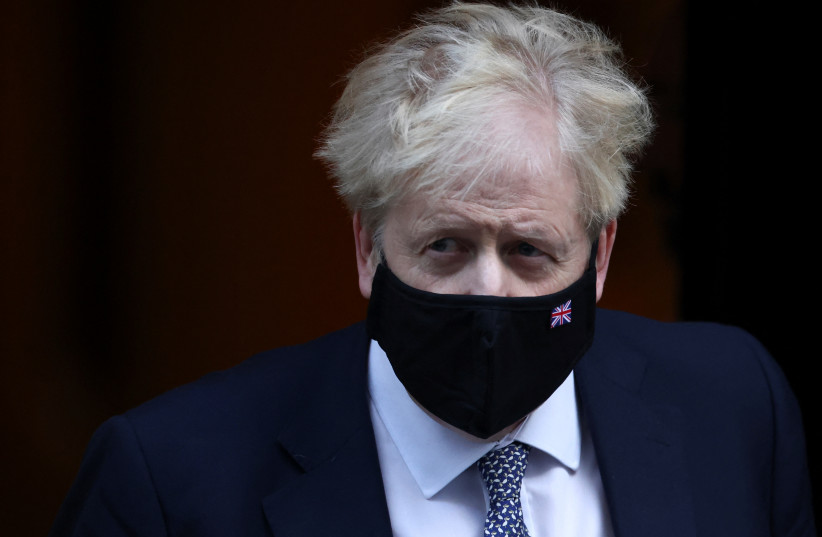Former Prime Minister Boris Johnson quit as a member of British parliament on Friday in a furious protest against lawmakers investigating his conduct, reopening divisions in the ruling Conservative Party ahead of national elections next year.
Johnson had been fighting for his future with a parliamentary inquiry investigating whether he misled the House of Commons when he said all COVID-19 rules were followed even though parties were held in government buildings during national lockdowns.
Johnson said he was stepping down because it was "clear" that the committee was "determined to use the proceedings against me to drive me out of parliament."
He also chided current Conservative Prime Minister Rishi Sunak for his performance in power.
Parliament's privileges committee had the power to recommend Johnson be suspended from parliament for more than 10 days if they were to find he did mislead parliament recklessly or deliberately, potentially triggering an election for his seat.

"I am being forced out by a tiny handful of people, with no evidence to back up their assertions, and without approval even of Conservative party members let alone the wider electorate," Johnson said in a statement.
"It is very sad to be leaving parliament - at least for now - but above all I am bewildered and appalled that I can be forced out."
Johnson, whose premiership was cut short in part by anger in his own party and across Britain over COVID rule-breaking lockdown parties in his Downing Street office and residence, accused the committee of acting of being the "very definition of a kangaroo court."
"Most members of the committee - especially the chair - had already expressed deeply prejudicial remarks about my guilt before they had even seen the evidence," he said.
"In retrospect it was naive and trusting of me to think that these proceedings could be remotely useful or fair."
The committee had no immediate reaction to Johnson's statement.
The attack on Sunak
The resignation will trigger a by-election for his Uxbridge and South Ruislip constituency. It is the second in a day for Prime Minister Rishi Sunak after an ally of Johnson, Nadine Dorries, announced she would step down.
Johnson came to power nearly four years ago, promising to deliver Brexit and rescue it from the bitter wrangling that followed the 2016 referendum. He shrugged off concerns from some that his narcissism, failure to deal with details, and a reputation for deceit meant he was unsuitable.
Some Conservatives enthusiastically backed the former journalist and London mayor, while others, despite reservations, supported him because he was able to appeal to parts of the electorate that usually rejected their party.
That was borne out in the December 2019 election. But his administration's combative and often chaotic approach to governing and the scandals exhausted the goodwill of many of his lawmakers. Opinion polls show he is no longer popular with the public at large.
Johnson used his resignation statement to deliver an attack on Sunak's premiership.
"When I left office last year the government was only a handful of points behind in the polls. That gap has now massively widened," he said.
"When I left office last year the government was only a handful of points behind in the polls. That gap has now massively widened."
Boris Johnson
"Our party needs urgently to recapture its sense of momentum and its belief in what this country can do."
